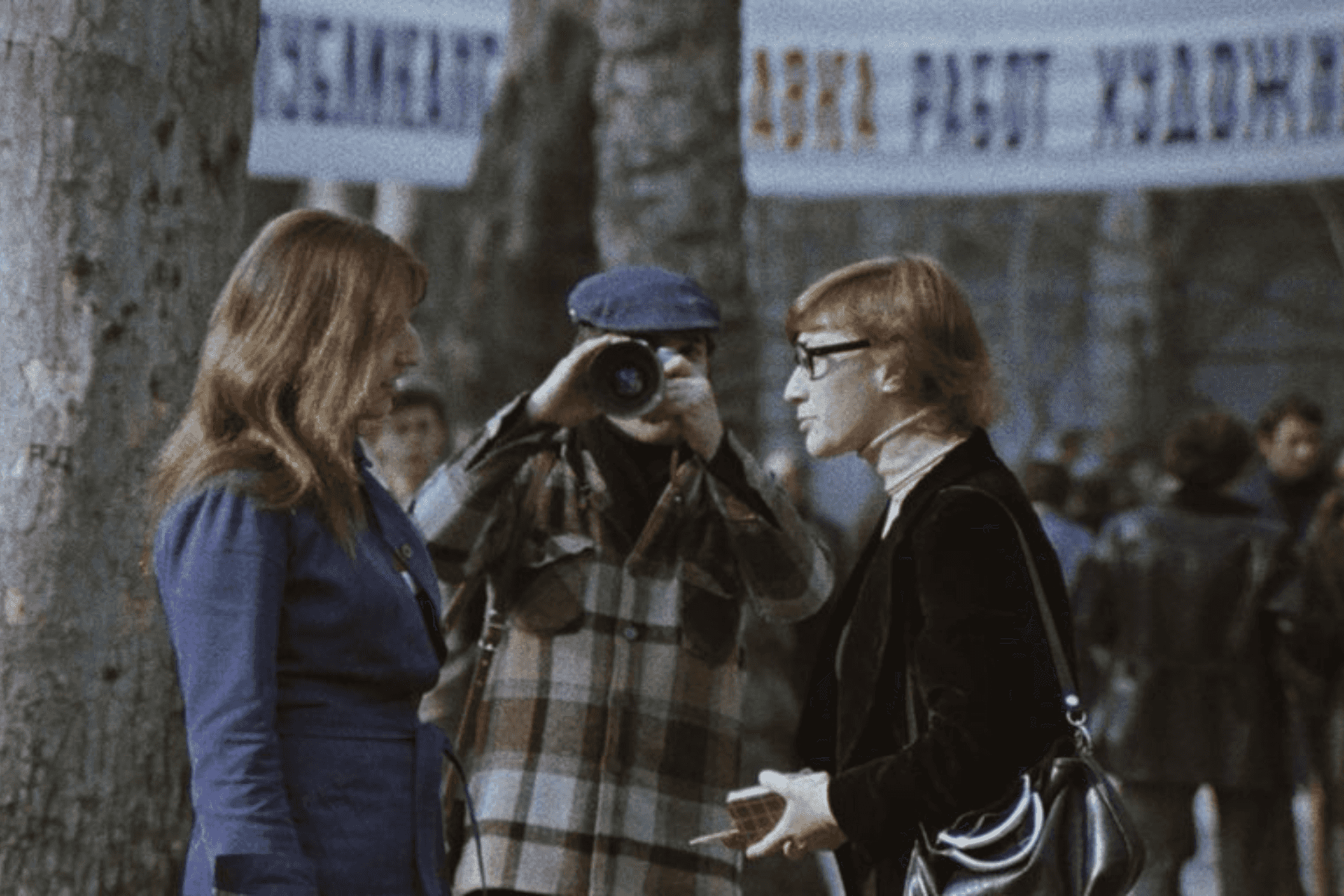
★★★★☆
This impressive feature-length documentary debut shows a diverse Pankisi Valley rarely explored in Western media.
Located in northeast Georgia amongst the upper reaches of the River Alazani, Pankisi Valley is home to around 10,000 Kists, a Chechen sub-ethnos originating from 19th-century migration. Today, the valley has also become a substitute homeland for ethnic Chechens forced to flee the republic following the brutal wars with Russia after the collapse of the Soviet Union. It was here that Chechen-born director Déni Oumar Pitsaev was given a plot of land by his mother in 2017, inspiring him to document his experiences re-uniting with family and exploring what it means to be Chechen today.
Pitsaev was born in Chechnya in 1986. Following his parents’ separation in his childhood, he moved with his mother, growing up between Grozny, Saint Petersburg, and Almaty, before eventually studying cinema and audiovisual arts in Paris and Brussels. It was his father’s absence throughout much of this that inspired the film’s title Imago — the term referring to an unconscious idealised mental image of a parent which influences a person’s behaviour — and becomes one of the threads tying the documentary together.
‘This place, on the border of Georgia and Chechnya […] became a metaphor. If I built a house there, it would be like a beacon calling me, and perhaps I could artificially rebuild my family: my mother, my father, my cousins, my brothers on both sides […] A way to bring us together again, through cinema’, Pitsaev said in an interview during Critics’ Week at Cannes.
Throughout the film, Pitsaev engages with different groups within Pankisi society, from young men discussing traditional faith to older women debating the meaning of freedom in their lives and the world at large. The image of Pankisi Valley portrayed is one of diversity — a far cry from the usual depictions and understandings of it as a hotbed for extremism and religious fundamentalism.
The only subsection Pitsaev seems to avoid speaking with are young women — perhaps due to pressure from society as a whole to get him to settle down and marry. His mother is one of the biggest proponents of this, having originally bought the land in the hopes it would encourage Pitsaev to finally settle down as a ‘traditional Chechen man’ should. Yet Pitsaev rejects the many advances from neighbours and family members, instead digging deeper into why both his parents desire this in the first place, and what it truly means to be Chechen.
Through his conversations with his mother, he, and the audience, learn the pressures she felt in Chechnya, including over naming her own son, a task traditionally given to a male elder within the family. Yet while she herself appears to have fought in some form against societal demands, she appears to be attempting to burden her own son with some of these weights.
In turn, after she leaves, Pitsaev’s father comes, also pushing for marriage and children, calling the latter a duty. With him, Pitsaev delves more concretely into his feelings of childhood abandonment, questioning his father over their differing war experiences.
Pitsaev and his family were from Samashki, a village in western Chechnya, now most well known for being the site of the most notorious civilian massacre of the First Chechen War. Pitsaev drills his father, trying to understand how, when such events were occurring, his father appeared to have no desire to search for him. Decades after the fact, it is a family reckoning, where both father and son must face their pasts, and the obstacles faced due again to societal pressures over what it means to be a man.
In an interesting documentary filmmaking technique, Pitsaev chose to incorporate the camera’s presence within some of these conversations, showing when people had misgivings or nerves about being on-camera. While unorthodox, it works in the context, making it clear the relationship Pitsaev has with his subjects, as both neighbour or family member and filmmaker.
Imago is an impressive debut film — something noted at the 2025 Cannes Film Festival, where it won the Golden Eye for best documentary, as well as the French Touch Prize of the Jury during Critic’s Week. Through Pitsaev as the focus, the film skillfully explores modern Chechen identities, and gives the audience a glimpse into a different side of Pankisi Valley.
Film details: Imago (2025), directed by Déni Oumar Pitsaev. It will premiere in the UK on 6 October as part of the 2025 London Georgian Film Festival.










